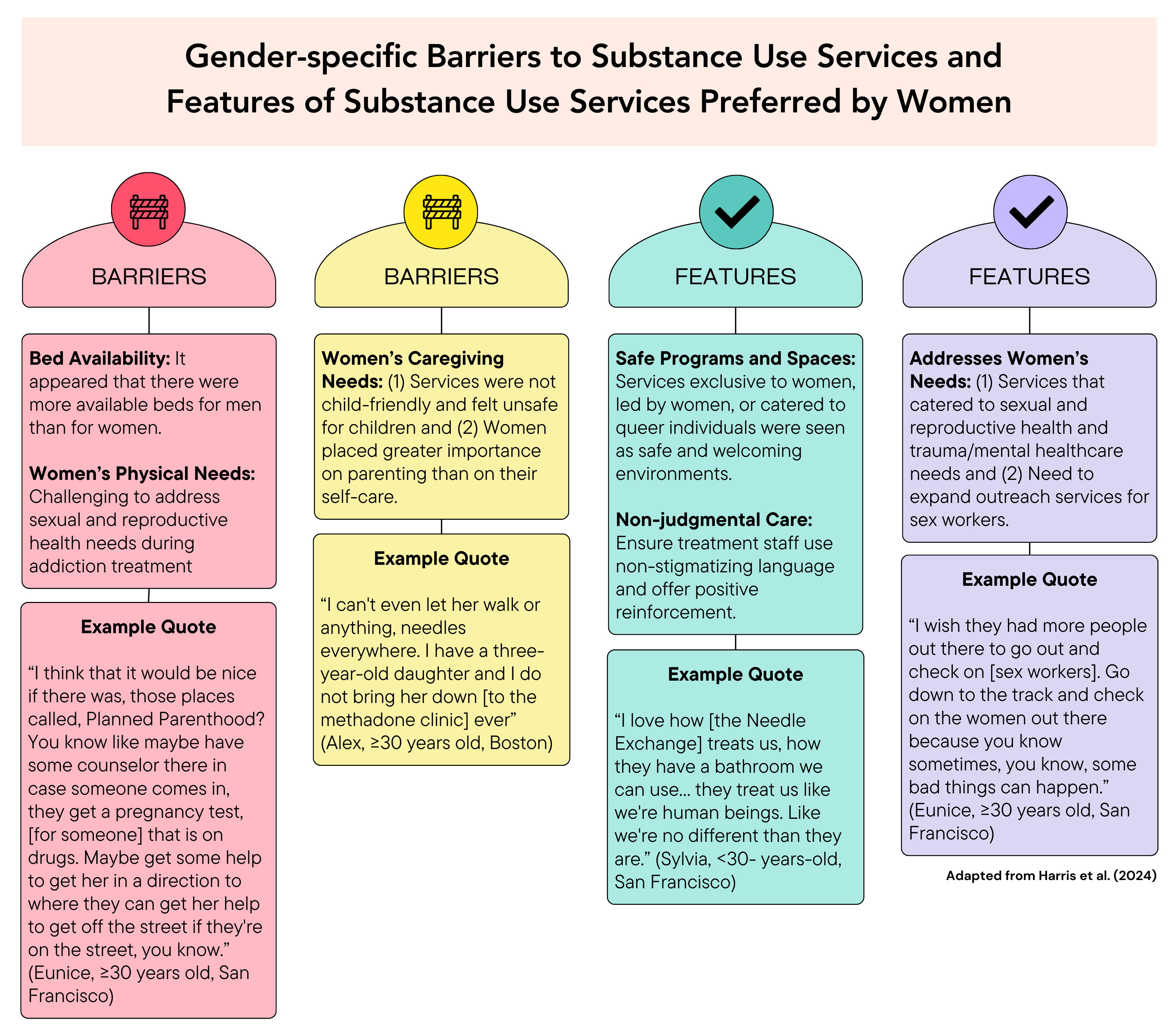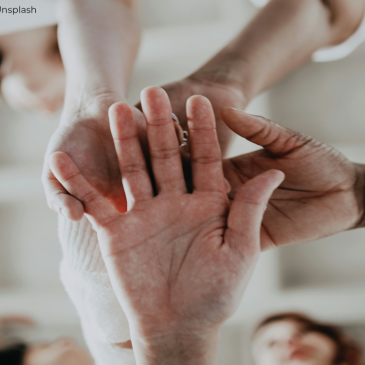Women who use drugs often encounter challenges with addiction treatment services that overlook their specific needs, such as greater need for trauma-informed care. This might make women’s substance use treatment experiences less therapeutic. Moreover, intersectionality, which considers how multiple stigmatized identities intersect, is crucial for understanding the experiences of women who use drugs – especially among women involved in sex work. This week, STASH reviews a study by Miriam T.H. Harris and colleagues that explored how gender identity, drug use, and involvement in sex work affect women’s drug use experiences, interactions with substance use services, and preferences for these services.
What was the research question?
How does gender identity intersect with drug use and sex work practices to influence women’s experiences with drug use and substance use treatment?
What did the researchers do?
The researchers conducted a secondary analysis of qualitative interviews involving self-identified women in Boston, MA and San Francisco, CA who used non-prescribed opioids. They recruited participants in collaboration with community organizations, through social media, and via respondent-driven sampling. Between January and November 2020, they conducted a total of 36 interviews. These interviews explored participants’ drug use experiences and interactions with substance use services, among other topics. Interviews were audio-recorded and transcribed verbatim. Keeping in mind the concepts represented in the intersectional framework, the researchers used a grounded content analysis to identify themes related to drug use and substance use service experiences.
What did they find?
The interviews revealed that intersectional factors, including being a woman, engaging in drug use, and practicing sex work, worsened experiences of marginalization and often led to physical, sexual, and psychological violence in places where drug use was common. Women observed a preferential bias toward men in substance use services, creating barriers for women regarding bed availability, access to sexual and reproductive healthcare, and childcare needs (see Figure). Half the women described experiences of assault when accessing substance use services. For example, one woman mentioned a case of sexual assault involving staff in a recovery program, saying, “When I say that people are likely to target you, I’m not talking about the drug dealers. I’m talking about the doctors. People who are just like, ‘Oh, nobody’s going to believe her. She’s just some druggy.’ The people that I’ve had the most problems with are not other individuals who use drugs, it’s largely been medical professionals.” As a result, women preferred substance use services that offered safe and inclusive environments, non-judgmental care, and addressed their specific needs, such as expanded outreach services for sex workers (see Figure).

Figure. This Figure, adapted from Harris and colleagues, depicts the barriers to substance use services and features of substance use services that are preferred by women, including quotes from study participants of their experience accessing substance use services. Click image to enlarge.
Why do these findings matter?
The findings reveal the significant obstacles faced by women who use drugs, especially those involved in sex work. Some clinicians and policymakers advocate for the decriminalization of drugs and sex work, which they believe will reduce violence against women. They can also promote policies that strengthen trauma-informed substance use services, prioritizing women’s safety and specific needs like sexual assault and reproductive health. Integrating women who use drugs into the care workforce by developing or expanding peer support programs can enhance inclusivity and increase treatment adherence. Additionally, more research is needed to understand and address gender-based violence in substance use service settings. Services must be re-evaluated to avoid perpetuating gender biases or neglecting the needs of women. Addressing these issues can help create a society where women who use drugs receive equitable support, free from violence and discrimination.
Every study has limitations. What are the limitations in this study?
The study’s design did not explore how other marginalized identities, such as being a person of color or being gender nonconforming, influence participants’ experiences. Consequently, the value placed on women-only and sexual reproductive health services may not be generalizable. Future research should explore how different identities impact drug use and substance use services. Additionally, the study did not include many young women, overlooking their unique challenges and barriers to care. Lastly, the study’s location limits how these findings can be applied to other settings.
For more information:
For those in the Boston, MA area, Greater Boston Addiction Centers offers services for women looking to access drug addiction treatment programs. If you are worried that you or someone you know is experiencing addiction, the SAMHSA National Helpline is a free treatment and information service available 24/7. For more details about addiction, visit our Addiction Resources page.
— Nakita Sconsoni, MSW




